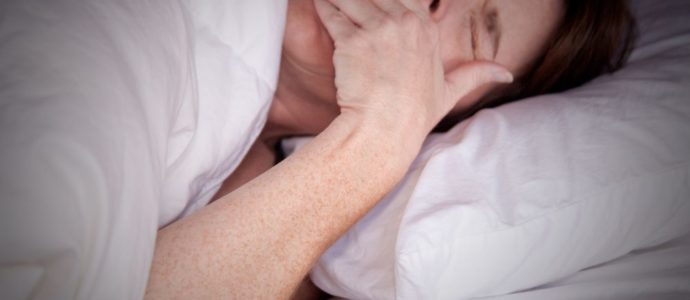Menopause often causes changes that can negatively impact your sleep pattern. Sleep disorders associated with hormonal changes during menopause are common. Factors that influence sleep disturbances include fluctuation of hormones, nocturnal hot flashes, and psychological symptoms, such as mood changes. Insomnia Insomnia involves trouble getting to sleep, staying asleep, or maintaining restorative sleep. Restorative sleep
Menopause
Menopause is a normal transition that occurs when a woman stops getting regular menstrual periods; it involves various physiological changes, including some significant fluctuations in hormones. Most people realize there are some of the unpleasant symptoms caused by menopause, such as hot flashes, but you may not be aware that menopausal changes in the body
Around the age of 40, many women wonder about the possibility of when menopause will start. Perhaps this is around the age when your mother or grandmother started experiencing symptoms. Or, maybe menopause is on your mind because you’re feeling the effects of your current age within your body. The truth is, the question of
Menopause marks the end of a person’s menstrual cycle and is a natural progression in the reproductive system of those with ovaries. Menopause symptoms typically start in middle age and depending on what stage of menopause you are in, your physical and mental symptoms will vary. Your first year of menopause will bring many changes,
The end of a woman’s menstrual cycle, also known as menopause, is a natural progression in the reproductive system of those who ovulate. Menopause symptoms usually start in middle age, but everyone’s experience is different and begins at different ages. Depending on what stage of menopause you are in, your physical and mental symptoms will
During menopause, the ovaries produce lower levels of female reproductive hormones, which can cause a wide range of uncomfortable symptoms. Although coping with these symptoms sometimes requires medication or hormone replacement therapy, in many cases women can manage menopause on their own by making a few lifestyle adjustments. Hot Flashes A common symptom of menopause,
Managing menopause symptoms can feel challenging enough, but when menopause misconceptions are also thrown into the mix, the process of getting through them one day to the next can be daunting. Menopause, unfortunately, still falls behind in terms of how it is discussed (if at all) in popular culture. It’s not likely to be a
Historically, women have been conditioned to treat discomfort as a natural side effect of … well, being female. However, there at least three uniquely female health-related symptoms you don’t have to accept as part of your daily life – one at each stage of womanhood. Modern medicine can help relieve pain and discomfort when it
The question of whether or not to see a doctor for menopause leads to questions about quality of life. Not every woman experiences menopause the same way. While some studies have shown that 80% of women undergoing menopause reported no decrease in quality of life, menopause research is limited, especially in minority populations. You should
Typically, most women will begin to experience pre-menopause symptoms in their 40s and 50s and complete menopause in the same timeframe. Sometimes, these symptoms can begin even earlier than age 40 due to premature menopause. Premature menopause, linked to premature ovarian failure (POF), means that these women no longer release an egg each month during











